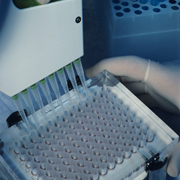Coping with Cancer, Part Three

As a doctor, I see people go through hard times as they face difficult diagnoses. I see many of them become heroes. They inspire me in the process.
Heroes or not, we are all human. Sooner or later we all experience health problems that make it hard to get up in the morning and face another day.
In my last two posts, we met a new fictitious friend, Judy, who just learned she has breast cancer. We learned how important friendship is in dealing with a difficult diagnosis. We learned that getting the facts helps us cope with a disease. We also learned that understanding our feelings can keep us from being overwhelmed by them. In today’s post, we’ll learn about the importance of looking ahead to the future.
Looking Ahead
After discussing the emotional stages of dealing with bad news (see my last post), Kubler-Ross points out that a common thread runs through each stage: HOPE. There is hope for a last minute cure, hope that tomorrow will be better, hope that we will leave a positive legacy for our children, hope that our suffering will help others in some way. With hope, we are no longer focused on the pain and suffering we feel now. Instead, we are looking ahead to what tomorrow may bring.
The fourth step in coping with cancer is to face the future. For Judy, the first step was planning another dinner out with Mark after she recovered from her first round of chemotherapy. Eventually, she even let herself hope that she would live to see her grandchildren after all.
We need to be realistic, and to accept that the future may not be what we want. Our responsibilities to others require us to do so. But we should still always hope for the best. If the doctor tells me that my chances of surviving are only ten percent, there is nothing wrong with planning to be in that ten percent. If ten percent survive, or even two percent, why shouldn’t I be one of them?
Facing the future is not just about me. Facing the future also means that I think about the needs of those around me. What can I do today that my children will always remember? What can I do today for someone else that I will always remember with satisfaction? What can I do today that will help others even after I am gone? Any doctor will tell you that cancer patients are often the kindest, most considerate, and selfless patients we see. Part of the reason is their perspective. Facing cancer means facing our own mortality. This does not just happen at diagnosis. Even if the cancer seems to be gone, every doctor’s appointment, every x-ray, every blood test, and every unexplained symptom is a reminder that the cancer is lurking around the corner, ready to come back at anytime. When we constantly face our own mortality, we can easily distinguish between the things that are truly important and the things that do not really matter.
These lessons are not just important for cancer patients. They are important for all of us. If, as the friend of a cancer patient, I learn to see life more clearly through their eyes, they will have helped me more than I have helped them.
Let’s review the steps Judy has been through in these three posts.
Dealing with a Difficult Diagnosis:
Find a friend/be a friend.
Learn the facts.
Understand the feelings.
Face the future.
************************************************************************
If you missed them, be sure to read the rest of Judy’s story in my last two posts. For more information, take a look at my book, Navigating the Medical Maze. You can also learn more on my website, www.drstevenbrown.org.
Let me know what you think about Judy’s story. I hope it has helped and encouraged many of you.



